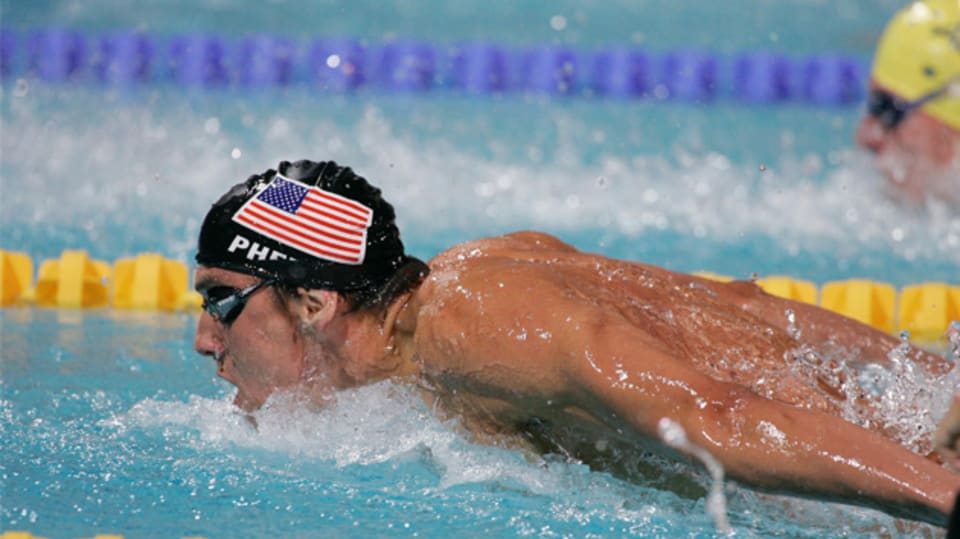
US swimmer Michael Phelps was entered into no less than eight events in Athens, and was widely regarded as a genuine prospect of a medal in each. It was a feat that had only been achieved once before – by Soviet gymnast Aleksandr Dityatin at the 1980 Games in Moscow.
Phelps has started swimming at the age of seven. He had been diagnosed with the medical condition attention-deficit hyperactivity disorder (ADHD) as a youngster and found that swimming gave him a way to focus his energy.
By the age of 10, he was breaking national records for his age group. When he turned 15, he was called up for the US team for the 2000 Olympics in Sydney, where he finished fifth in the 200m butterfly.
However, by the time of the Athens Games, he had developed into one of the best-known swimmers in the world, and now had world records and world titles to his name. The burden of expectation on his shoulders as he jumped into the Athens pool was enormous but it didn't seem to affect him.
His first race was the 400m individual medley, which produced a world record and a gold medal. He followed up by winning the 100m butterfly and 200m butterfly, setting a new Olympic record in each. Gold number four came in the 200m individual medley, before he added a bronze medal in the 200m freestyle and another in the 4x100m freestyle.
He then clinched another gold in the 4x200m freestyle relay before deciding to sit out the final of the 4x100m medley to give veteran US team-mate Ian Crocker the chance of a gold medal. The gamble worked – the USA won the race and both men were awarded a gold medal.
For Phelps, it was the culmination of an utterly extraordinary Olympic Games. He had won eight medals, six of them gold and two bronze, and made his name as one of the biggest stars in world sport.
The American’s record-breaking exploits continued through the Games of 2008 and 2012, and by the time he completed his final Olympic event in London he had become the most decorated Olympian in history with 22 medals, 18 of them gold.
